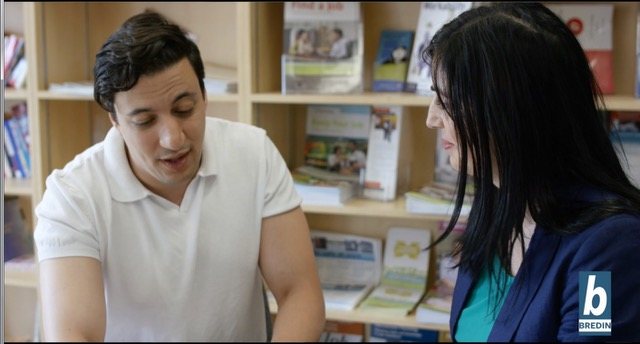October 12, 2020
Grant from ECF enables the Edmonton Local Immigrant Partnership support the frontline workers supporting their clients
There’s a coalition of agencies in Edmonton that supports newcomers, from helping people find employment to food– security programs.
Leaders from these agencies meet regularly. Under the Edmonton Local Immigrant Partnership umbrella (ELIP, for short), they discuss common issues and how to best collaborate and address the needs in the communities they serve.
As the COVID-19 pandemic began and persisted, it became apparent that the effects of physical distancing and isolation were hitting the immigrant community in very particular ways.

Without ways to network, how could newcomers start a job search? How could they learn about their new home, develop the soft skills of cultural fluency, improve English-language skills, and start to feel at home here? How could they cope with the mental-health challenges of COVID-19, when “feeling apart” and having fewer support systems are already systemic in the immigration experience?
But another other theme has arisen quickly. Many of the frontline workers at these agencies are newcomers themselves. And they, themselves, are struggling.
Tarek Fath Elbab, an ELIP member and the manager of Community and Stakeholder Engagement at the Bredin Centre for Learning (an agency that since 1976 has been helping Albertans find employment, and has a large client population who are immigrants dealing with relicensing issues as well as basic employment upon arriving in Canada) recalls the discussions about this double-crises they saw unfolding this spring.
“How about the frontline workers who have to support people struggling with social isolation and all the stress that they are facing with COVID-19? At the same time they have their own stress?” Fath Elbab asks.
ELIP members realized that they needed first to gather information and then address those common threads.
Fath Elbab’s portfolio now includes leading the Frontline Wellness Project, a partnership project between the Bredin Centre for Learning and the Multicultural Family Resources Society. And with a $22,000 grant through Edmonton Community Foundation (ECF), he created an assessment survey for frontline workers and agency around their needs, and now uses this data to create a series of educational sessions based on the findings in the assessment.
“It’s a peculiarity of the non-profit sector that often the people who are providing help also need to access help and that people who provide essential services are often underpaid and over-burdened,” Craig Stumpf-Allen. ECF’s Director of Grants and Community Engagement said. “Frontline workers are considered a priority population for the ECSF, but few organizations address this need.”
Since July, 10 agency leaders have taken the survey. More than 100 frontline workers have as well.
When asked if respondents needed access to mental-health support, 56% said they did, and 91% said they needed help working under stress. Work-life balance, as it relates to mental health, was an issue that 78% of survey-takers wanted more resources on.
The Frontline Wellness Project has already streamed sessions on racial justice, race and the media, and a very successfully attended “Stress Management Online Session” with TEDx speaker, corporate trainer, business owner and founder of Rise Up for You, Nada Lana Naserdeen. On September 29, a workshop facilitated by Alberta Black Therapists Network addresses work and life balance with frontline workers.
Those who have participated in the workshops are expressing gratitude. One attendee said that “this project shows caring about frontline workers. It helps us learn, grow, and connect with others.” Another found it “inspiring and empowering.”
The Frontline Wellness Project runs through to October 2020. At the end, each participating organization will be provided with the results of the survey. This important evidence-based data will continue to guide participating agencies on how to better support their service providers who continue to support vulnerable newcomers through the rest of the COVID-19 crisis in Edmonton.
Learn more about the Emergency Community Support Fund.